(1).jpg)
OMAR KHAYYAM: A POET OF WINE OR THE PRIDE OF SCIENCE?
Omar Khayyam is a figure who, even nine centuries after his death, continues to be spoken about. Everyone knows him for his quatrains about wine, most of which are not even his. Recently, he came back into the spotlight due to a remark by one of a pianists in Türkiye: “If Khayyam were alive today, he would be sent to Silivri Prison.”
Omar Khayyam was born on May 18, 1048, in Nishapur. He passed away there on December 4, 1131. He became known by this name because his father was a khayyam (which means “tentmaker” in Arabic). He was educated in Nishapur. He became a student of Muwaffaq al-Din Abd al-Latif ibn Lubad. He remained with his teacher until his death. It is said that he was a schoolmate of the Seljuk vizier Nizam al-Mulk and the famous Batinite sheikh Hassan-i Sabbah.
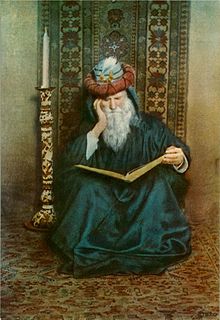
The Father of Mathematics
Omar Khayyam was one of the greatest mathematicians in history. He was the first to use the Binomial Expansion. The mathematical rule taught in schools as Pascal’s Triangle was actually formulated by Omar Khayyam. He was one of the world’s leading scientists in astronomy. He also holds an important place in the history of global science. He founded the world’s first modern observatory.
He was also a renowned calendar expert. Unlike most of his contemporaries, his exact birth date is known, which stems from his specialization in this field. He was the architect of the Jalali Calendar, commissioned by the Seljuk Sultan Jalal al-Din Malik-Shah. A solar calendar was prepared solely for fiscal matters; however, the years were still calculated according to the Hijra. The Jalali Calendar is more precise than the Gregorian Calendar.
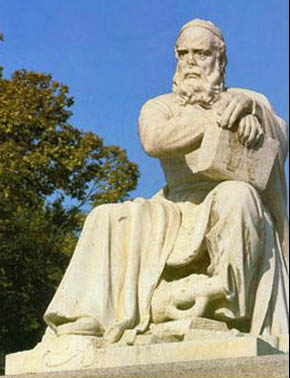
The Leader of Those Who Do Not Care About the World!
Omar Khayyam had a deep understanding of philosophy. In order to counter the theories of philosophers, he contemplated the mysteries of the universe using these methods; although he never uttered a word contrary to Islam, he was accused of being a Batinite or a Mu'tazilite solely because of his free lifestyle. Indeed, in his quatrains, he freely expresses his thoughts on subjects such as the world, existence, God, the state, and social structures. Because he had a culture far beyond his era, he made these conceptions without binding himself to traditions and the principles of society, which earned him universal fame.
Yes, Omar Khayyam was known for his fondness for reasoning, but there is not the slightest evidence that he was a Batinite or Mu'tazilite. His free-spirited attitude was seen as a source of inspiration by those unwilling to bow to existing authority; Omar Khayyam was portrayed as the leader of those who did not care about the world. In his work Silsilat al-Taratib, he criticizes the Batinites, Mu'tazilites, and philosophers; he reveals the flaws in their methods of attaining ma‘rifatullah (spiritual knowledge of God).
Omar Khayyam authored many works, 18 of which are known by name. Among these are works on astronomy and calendars, geometry, algebra and equations, ontology, physics, philosophy, and topics such as: the necessity of opposites in the universe as an answer to three issues, the climate and weather changes of inhabited regions, determining the amount of gold and silver in an object made of gold and silver, and estimating the value of jewelry with diamonds without removing the stones.
He also wrote a treatise on solving a problem of Euclid, which was translated into French. He wrote the biography of his friend, the Seljuk vizier Nizam al-Mulk. All these works show his versatility. His work explaining the wisdom behind God’s creation of worlds and the obligation of worship upon humans indicates his faith. It is reported that on his deathbed he prayed: “O my Lord! I tried to know You as much as I could. Forgive me according to this understanding!”
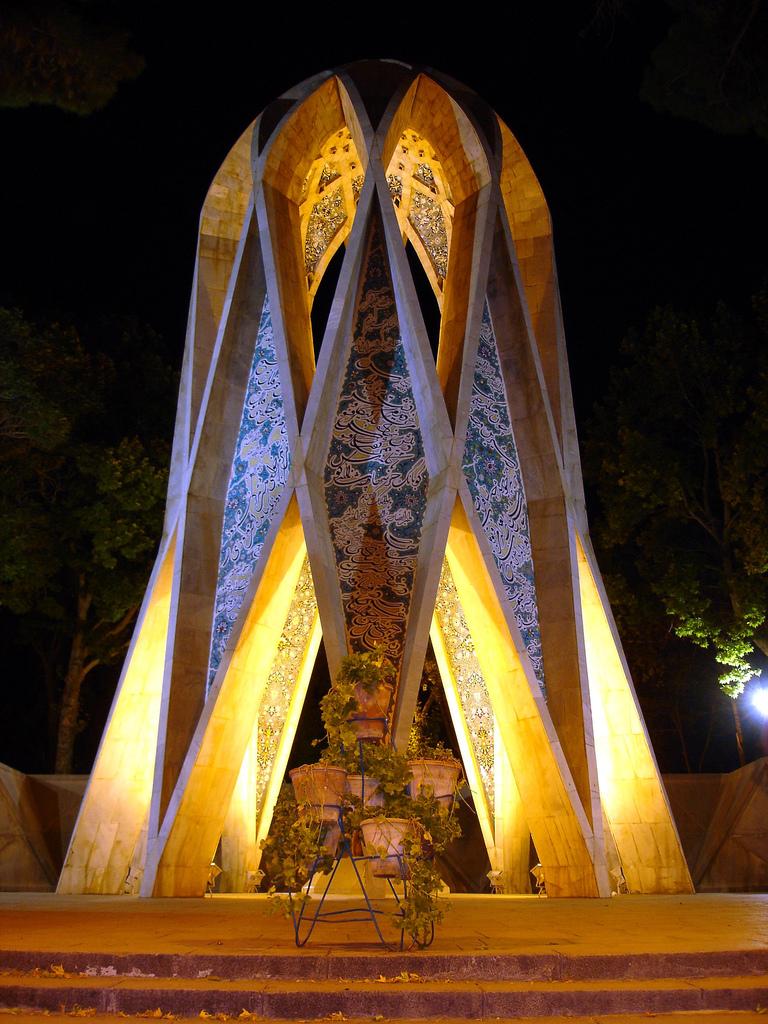
Omar Khayyam's tomb in Nishapur
Are They All His?
Omar Khayyam was also a powerful poet. He is mostly known for this aspect. This quatrain (rubai) of his is quite famous:
We have no money to fall in love with a beauty;
No wine either, to drink and shout aloud.
It seems there's no path to commit sin,
So helplessly, let us rise and pray.
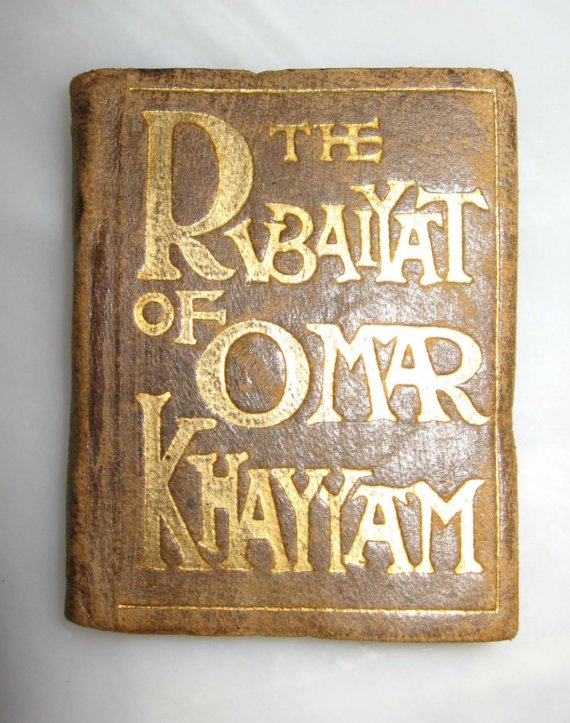
Because of themes like entertainment, wine, and love that appear in his quatrains, he has been unfairly accused. Those who understand that wine, tavern, cupbearer, and entertainment in Eastern literature contain symbolic meanings do not believe these accusations. His criticism of crude, ignorant zealots also misleads people. There is no expression in his poetry that goes against religion.
Quatrains that belong to others have also been attributed to him. For this reason, the number of his quatrains reaches into the thousands. These were not written during his lifetime. They began to be compiled four centuries after his death. Over time, they numbered in the hundreds. There are even significant differences between various manuscripts. Russian writer Zhukovsky states that only 83 quatrains actually belong to Khayyam. The rubaiyat translated into Western languages were often translated into Turkish not from the original Persian, but from Western languages. Moreover, some even altered the quatrains according to their own ideologies, portraying Khayyam as a drunkard, a Marxist, or an atheist poet.
At the very least, Abdülbaki Gölpınarlı, who knew Persian, translated and published these rubaiyat; in the preface, he explained which ones did not belong to Omar Khayyam and who the actual authors were. His work Silsilat al-Taratib reveals his mystical personality. It is understood that he was greatly influenced by the great Sufis Abu Talib al-Makki and al-Ghazali. This quatrain reveals Omar Khayyam’s hidden side:
To know the path of religion is shari‘a;
To act according to it is tariqa (the Sufi path);
If you unite knowledge and practice with sincerity,
Then that is haqiqa (truth).
To follow one’s whims is not shari‘a;
A path without shari‘a is not tariqa;
What the ignorant perceive is illusion, not truth.
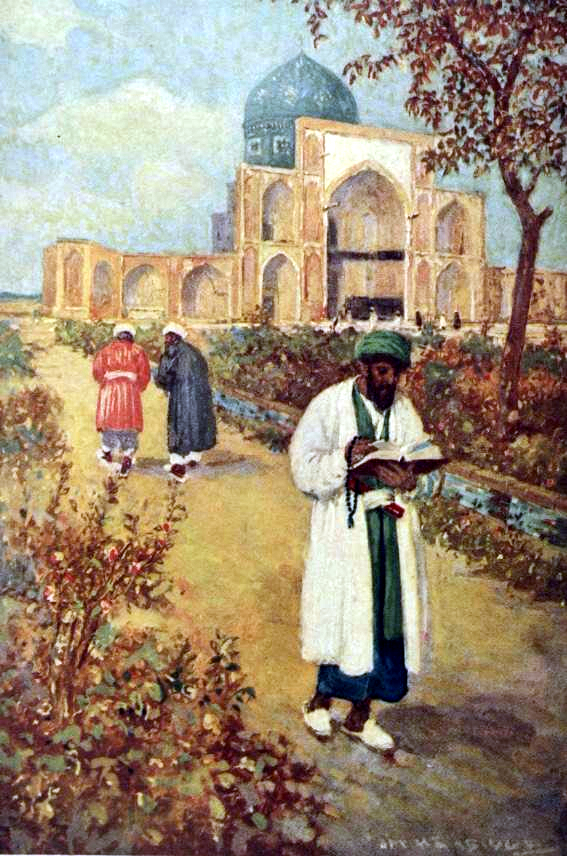
"At the Tomb of Omar Khayyam" by Jay Hambidge (1911)
Önceki Yazılar
-
THE WATER OF IMMORTALITY IN THE “LAND OF DARKNESS”28.01.2026
-
THE WORLD LEARNED WHAT FORBEARANCE IS FROM SULTAN MEHMED II21.01.2026
-
THE RUSH FOR GOLD14.01.2026
-
TRACES OF ISLAM IN CONSTANTINOPOLIS7.01.2026
-
WHO CAN FORGIVE THE KILLER?31.12.2025
-
WHEN WAS PROPHET ISA (JESUS) BORN?24.12.2025
-
IF SULTAN MEHMED II HE HAD CONQUERED ROME…17.12.2025
-
VIENNA NEVER FORGOT THE TURKS10.12.2025
-
THE FIRST UNIVERSITY IN THE WORLD WAS FOUNDED BY MUSLIMS3.12.2025
-
WHO BETRAYED PROPHET ISA (JESUS)?26.11.2025